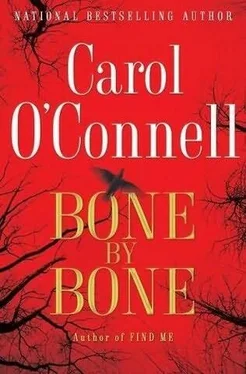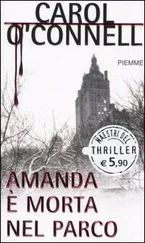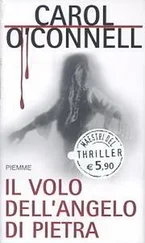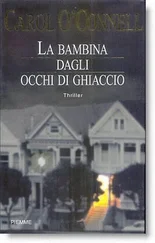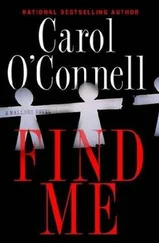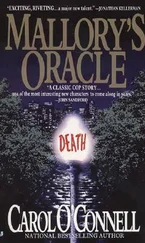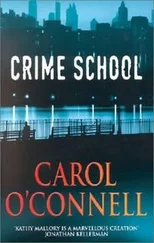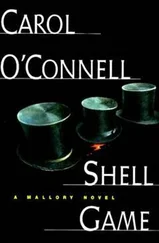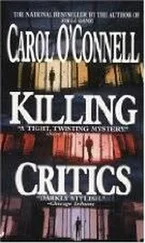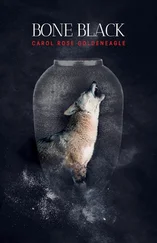A reporter stood before him, asking, "Mr. Monty, did the sheriff have any suspects when the boy disappeared?"
Here, Ferris had to pause, needing a bit of time to weigh his invitation to the birthday ball against everlasting life on the bestseller list. His unfinished manuscript contained his best writing. Twenty years ago, the book had been so promising, but it had no finish.
Until now.
"Mr. Monty? Any suspects that you know of?"
With this prompt from another reporter, Ferris Monty went careening down glory road. His lost muse was found and coaching him from the ether when he said, "There was one suspect… Joshua's brother. Oren Hobbs was seventeen years old at the time. You'll have to ask the sheriff why the boy was never arrested."
The reporters were waiting on his next words, tensing, extending microphones toward him and all but levitating off the floor. Then one of their number asked, "Any theories about that, Mr. Monty?"
"Oren's father was a sitting judge in those days. I'm sure the old man's influence had something to do with it. In any case, the boy was allowed to leave town, and he's been gone for twenty years. But that old miscarriage of justice was rectified this morning. The sheriff took Oren into custody only minutes before you arrived at the judge's house."
How gratifying to see the press corps scatter like cockroaches, reporters and cameramen scuttling off to their vehicles to hunt down the sheriff in Saulburg for their next sound bite. However, Ferris was writing this scene in his head, and it had yet to play out in real life. The reporters were still standing there, staring at him.
"Well, what are you waiting for?" He waved both hands, his fat fingers fluttering to shoo them on their way.
Oren Hobbs walked the last half-mile to Paulson Lane and stopped by a postbox with no name, only a number stenciled on the side. All of the homes in this area were set well back from the road and hidden by dense foliage. William Swahn's house was still in hiding when Oren came to the end of the long driveway. Thick vines camouflaged the high stone walls and reached up to a slate roof. What passed for a front porch was a Grecian portico supported by columns thick with ivy, and its marble steps and floor were veined with encroaching moss.
He stood before an oak door with a small, square grille of ornate iron at its center. There was no outside furniture, no chairs that might invite a visitor to stay awhile. There had never been anything inviting about this place.
He remembered it well.
Twice a week, he had come here with Josh when they were still in elementary school. The judge had sent them to this address on Good Samaritan duty. In those days, an old woman had resided here, and the boys had been charged with the mission of verifying that she was still alive and well and possessed of all her faculties, neither raving nor starving.
Oren pressed the doorbell. The ringer was loud so that the former tenant could hear it from every corner of her house. He waited for the new owner and listened for sounds of movement within. The householder was certainly at home. A car was parked in the driveway, a Mercedes. What else? It was the unimaginative choice of Coventry, and the previous tenant had also owned one.
The Hobbs boys had never been allowed inside the house. Oren and Josh had always spoken to the elderly woman through the iron filigree at the center of the locked door, rather like an interview with a cloistered nun. They had never seen her face, only her backlit shadow in a frame of light that made a square halo about her wispy unkempt hair. One morning, she had not come to the door, and they had reported this to the judge. In the afternoon, the boys had been told that the old woman was dead.
The current owner must be stone-deaf. Oren pressed the bell again, and this time he leaned on it, listening to the shrill ring reverberating throughout the house. After one full minute of this, a small square panel opened in the center of the door, and a shadowy head was outlined there behind the iron grille. Seconds ticked by. Evidently, no hello was forthcoming.
"Good afternoon," said Oren. "Sorry to disturb you, sir."
"Apology accepted," said the shadow man, and the panel was closed.
Oren waited for the massive front door to open-and he waited. Two minutes passed before he pressed the bell one more time-and for a long time. When the panel opened, he said, "I need to talk to you, Mr. Swahn. It's about Josh Hobbs." The panel was closing, and he rushed his words. "Wait! Please! I'm not a reporter. I used to be a cop-like you."
"I hate cops." The square panel closed with a slam.

Oren Hobbs walked down the driveway, intending to hike the quarter-mile home, but the sheriff's jeep was waiting for him by the side of the road. The passenger door hung open as an invitation to climb inside. When he had settled into the front seat, he stared at the windshield as he spoke to Cable Babitt. "I'm guessing you left something out of Swahn's file."
"Oh, the most interesting parts of my files are the things I leave out." The sheriff started up the engine. "He wouldn't talk to you, huh? Well, don't feel bad, son. I never had any better luck."
"You knew Swahn was a cop hater."
"Oh, yeah. Lord knows he's got reason." The sheriff pulled into the road and drove off at the leisurely pace of a man going nowhere. "Next time you talk to him, I'd leave cops out of the conversation." He made a right turn, and they traveled the back roads for a mile before he said, "One other thing I left out of that file-Swahn's no fool. He had two college degrees when most kids were still in high school. Then he picked up another one while he was waiting to turn twenty-one. That's when he joined the LAPD. All his life that genius kid only wanted to be a cop."
The sheriff turned to his passenger, no doubt waiting for the obvious question. But Oren was the judge's apprentice, and he knew better than to show any interest.
Another mile down another road, the sheriff wearied of the apathy. "It took me years to get the whole story. I went to a few police conventions down in Los Angeles. Had to get stinking drunk with cops before they'd talk to me. And I bought a lot of beer for Swahn's ex-partner, Jay Murray. The guy left the force-kicked out-so it took me a while to find him. Murray told me he called in sick the night his partner got ambushed on patrol. After another six-pack, he told me he wasn't sick at all. Interesting, huh?"
Oren could see where this story was going, but he said nothing to move it along. He only had to wait for the sheriff to fill the holes in his one-way conversation.
"This happened back in the eighties. The bad old days of the LAPD. You know-anything goes, cowboy cops. Lots of shoot-outs. They didn't wanna swap body fluids with a gay AIDS carrier. That was the rumor on William Swahn." Sheriff Babitt squinted into the light of the afternoon sun slanting through the trees.
"So Swahn's riding solo that night, and the dispatcher sends him out on a domestic dispute. Well, it's a bad area. He calls in for backup-but nobody shows. The kid goes in alone." The sheriff shrugged. "A rookie mistake. The next time Swahn called for help that night, he was hurt bad. Officer down-that should've brought out every patrol car on the planet. Not one cop came to help him." He gave his passenger a sidelong glance, but got no payoff from the younger man, who showed more interest in the road rolling by his window. "Son, I know what you're thinking."
Oren doubted that. He was wondering if any part of this story was backed up with proof, anything in the way of physical evidence or facts.
Читать дальше
